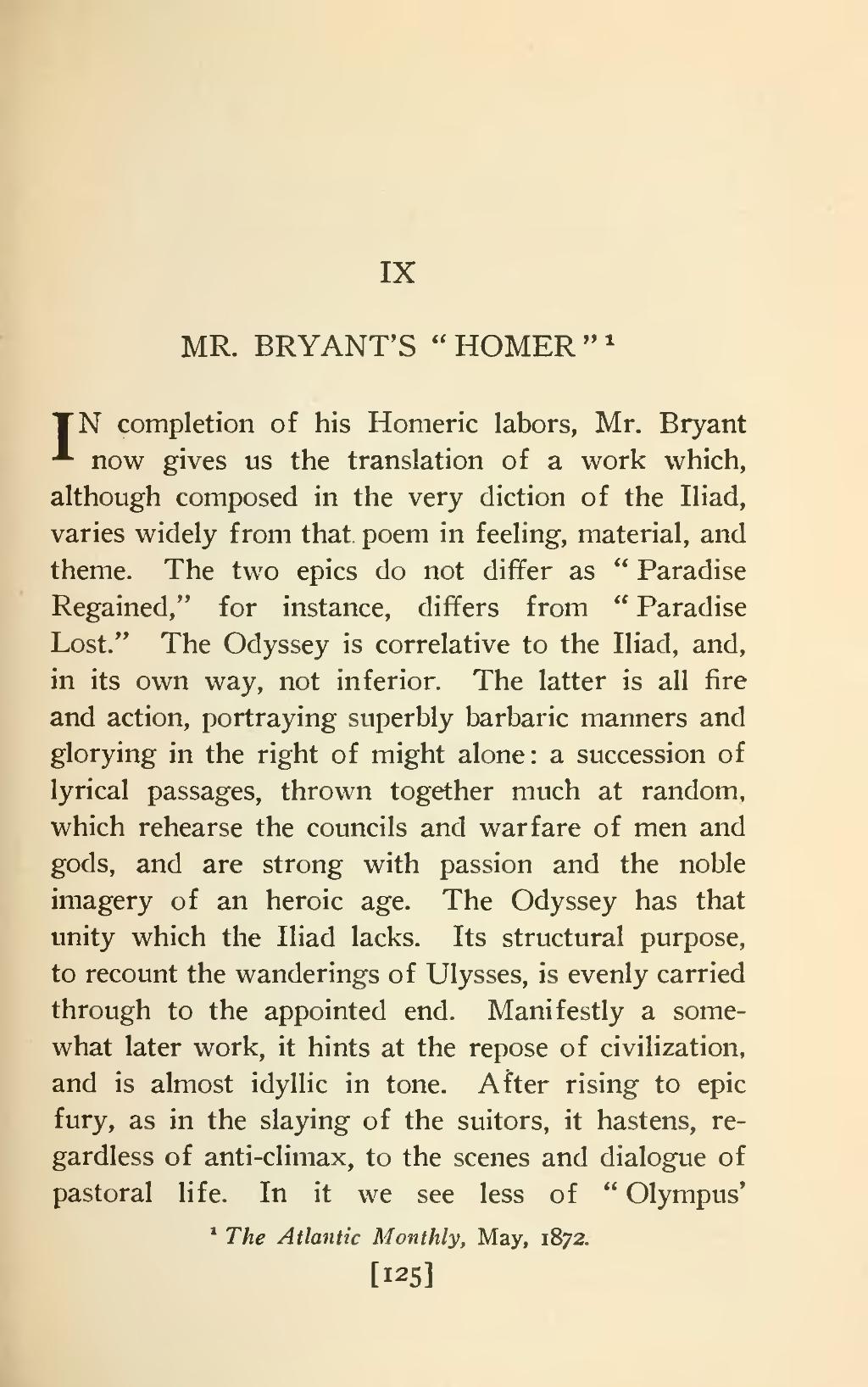IN completion of his Homeric labors, Mr. Bryant now gives us the translation of a work which, although composed in the very diction of the Iliad, varies widely from that poem in feeling, material, and theme. The two epics do not differ as "Paradise Regained," for instance, differs from "Paradise Lost." The Odyssey is correlative to the Iliad, and, in its own way, not inferior. The latter is all fire and action, portraying superbly barbaric manners and glorying in the right of might alone: a succession of lyrical passages, thrown together much at random, which rehearse the councils and warfare of men and gods, and are strong with passion and the noble imagery of an heroic age. The Odyssey has that unity which the Iliad lacks. Its structural purpose, to recount the wanderings of Ulysses, is evenly carried through to the appointed end. Manifestly a somewhat later work, it hints at the repose of civilization, and is almost idyllic in tone. After rising to epic fury, as in the slaying of the suitors, it hastens, regardless of anti-climax, to the scenes and dialogue of pastoral life. In it we see less of "Olympus'
[125]
